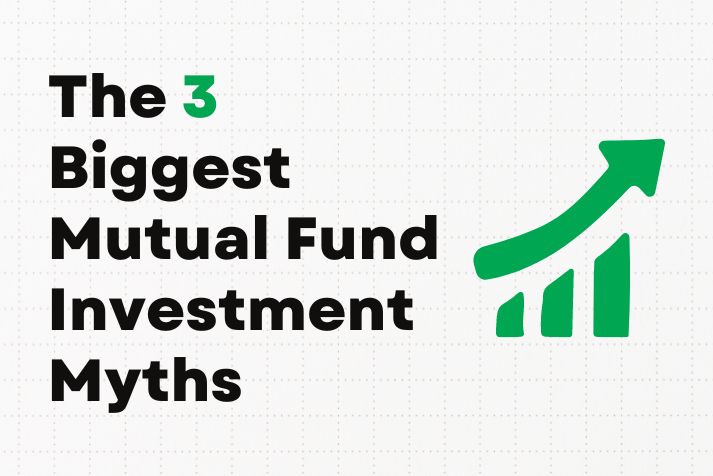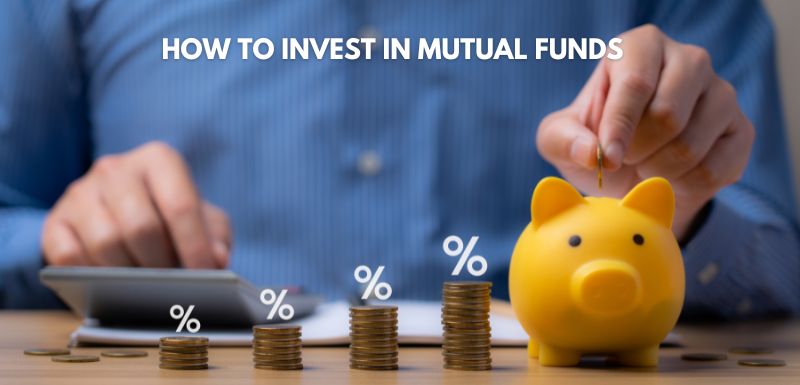
3 Mutual Fund Investment Myths
As the cumulative Assets Under Management (AUM) of Indian Mutual Funds may have gone past the 50 Lakh Crore (50 Trillion) rupee mark, there is anecdotal evidence suggesting that several Mutual Fund investment related misbeliefs still abound. Investors need to be aware of these myths to make informed decisions. Here are three common ones to watch out for:
Myth #1: Returns can be predicted
Equity Mutual funds mirror the performance of the equity market, due to the underlying securities that they invest in are mostly equity shares listed in the stock market.
While the broader equity markets have done very well in the past few years, it is most important to remember that equity markets have a mind of their own.
They are unpredictable and more often or not volatile. Hence, anyone who tries to predict the direction of the market is underestimating it. But if markets are unpredictable, how should one invest in a Mutual fund? The answer to that is to follow an investing process that helps take ‘informed risks’.
The process should entail a customised investing road map based on an individual's cash flows, life stage, investing expectations and goals. Returns cannot be predicted but investing behaviour can be and if you could align your investing behaviour to your goals and not get swayed by irrational market movements, you may increase the likelihood of achieving long term financial success and weather the volatility of the market with a more disciplined approach to your investments.
Myth #2: You need to have a sizeable corpus to invest in a Mutual Fund
It is often misunderstood that a Mutual fund is for people who have a sizeable investing surplus and is an investing tool for managing wealth. This is not true. Mutual Funds are an extremely affordable way of investing and can be termed as one the most efficient and best ways for wealth creation.
With a Systematic Investment Plan or SIP, you could start to invest with as low as Rs. 500 per month. Additionally, this allows investors to benefit from the power of compounding, enabling even those with modest financial resources to gradually build a significant investment portfolio over time. This accessibility democratizes investing, making it inclusive with a larger participation of people.
Myth #3: Investment Experts are over-rated
There have been several DIY and Robo Advisory investment platforms that have mushroomed over the years. These platforms have created transaction ease for most investors and with a click of a button one can invest in Mutual Funds.
A lot of these people are first time investors and probably do not undergo a detailed process of investing. The result is that when markets swing irrationally, an emotional roller coaster ride begins for these investors and more often results in decisions that cause losses to the investment portfolios.
If you have an investment expert who is aligned with your investments and more importantly is determined to help you achieve your financial goal, their experience and insights can prove invaluable in navigating through market uncertainties and maintaining a steady course for long term success.
An expert can provide personalized advice, handhold you during an adverse event and help form a disciplined approach to ensure your investments are well positioned for your specific financial objectives.
A Mutual Fund is a very effective tool towards wealth creation, and it is important to follow the correct process to invest to derive maximum benefit from investing in it.
Investors must conduct thorough research, understand their investment goals, and consider their risk tolerance before investing in mutual funds. Additionally, staying informed and questioning common myths can help make more informed investment decisions and asserting that ‘Mutual Funds Sahi Hai’
Your Investing Experts
Relevant Articles
How to Invest in Mutual Funds: Tips for Building a Balanced Portfolio
Mutual funds are one of the most versatile financial products to help you achieve your financial goals. They can help you diversify across various asset classes, such as domestic and international equities, fixed income, gold, etc. Some of them, like hybrid and multi-asset funds can help to build a diversified portfolio by investing in multiple asset classes through a single scheme. They allow you to make lumpsum and regular investments through SIP. Thus, mutual funds can cater to different investors with different schemes based on their requirements. In this article, we will understand how to invest in mutual funds and how to build a balanced portfolio through them.
ETF vs Actively Managed Mutual Funds: Key Differences Every Investor Should Know
When investing in mutual funds, investors can choose from schemes that can give market returns (benchmark index) or have the potential to outperform the market. Passive schemes, including index funds and exchange-traded funds (ETFs), provide returns that mirror the benchmark. Active schemes have the potential to outperform the benchmark. Many investors wonder whether to choose ETF or mutual fund. In this article, we will understand what are mutual funds and ETFs, their differences, and which is better: ETF or mutual fund.
How are Mutual Fund Returns Calculated?
We invest in financial products to achieve our financial goals. Based on factors like how much we want to invest, for how long, and the target amount, it is the expected returns that help us understand whether we can achieve our goal. The returns can be measured using different ways like absolute returns, compounded annual growth rate (CAGR), etc. In this article, we will understand what is absolute return, CAGR, how they are calculated, and which one you should use.
.png)


